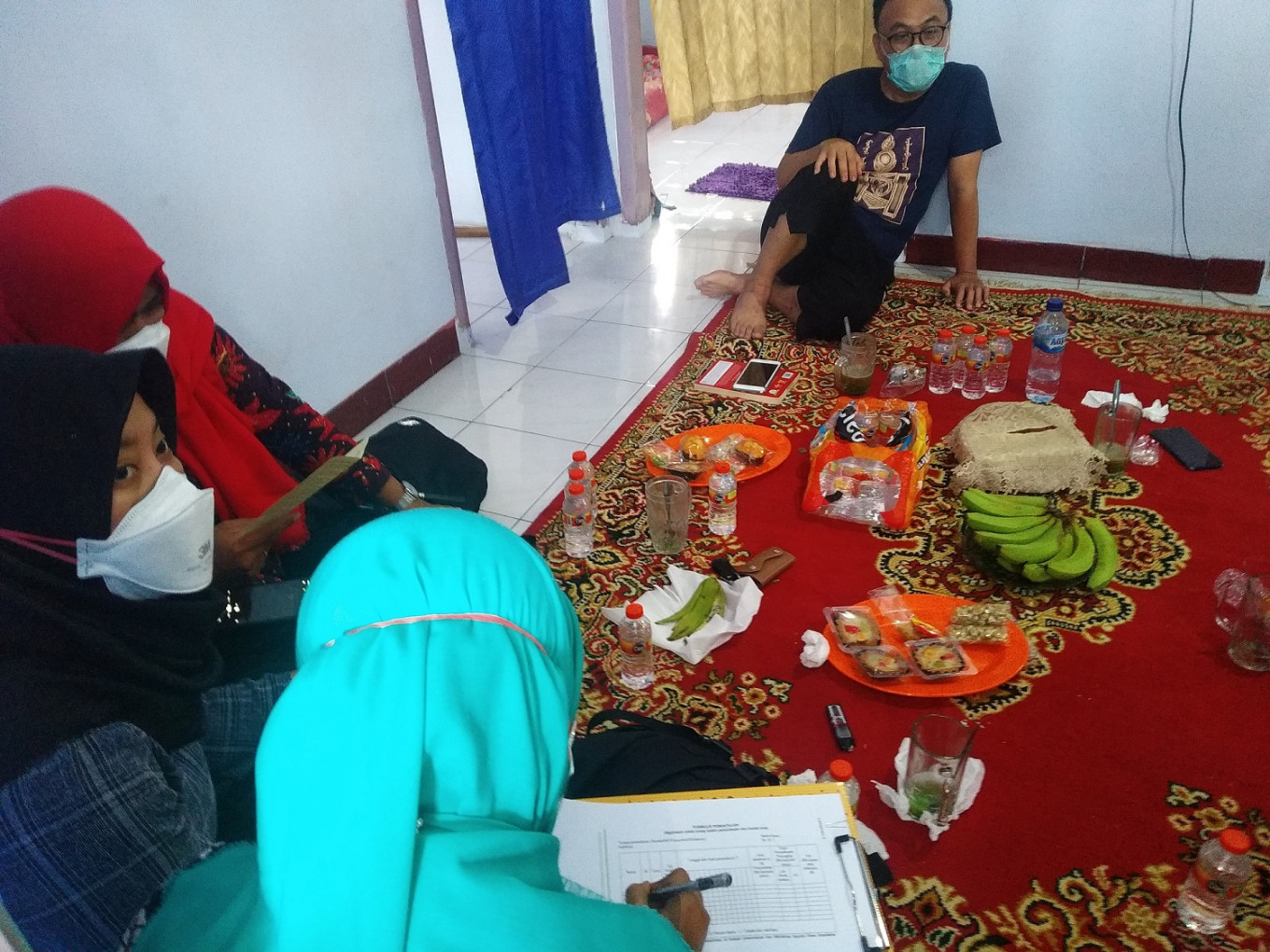Popular Reads
Top Results
Can't find what you're looking for?
View all search resultsPopular Reads
Top Results
Can't find what you're looking for?
View all search results68 returnees from China self-quarantined in North Sumatra
Foreign nationals were among the returnees and under observation by health agencies in the province.
Change text size
Gift Premium Articles
to Anyone
S
ixty-eight people that have just returned from China are undergoing self-quarantine in their homes for 14 days in North Sumatra to prevent a potential coronavirus outbreak.
The Medan Port Health Authority’s (KKP) quarantine control head, Rahmad Ramadhan Nasution, told The Jakarta Post on Tuesday that foreign nationals were among the returnees and were under observation by health agencies in the province.
“All 68 people are spread in several regions in North Sumatra. They have signed an agreement to conduct self-quarantine and to always use medical masks,” Rahmad said.
The new coronavirus has infected more than 42,000 people and killed more than 1,000 on mainland China, overtaking global fatalities in the 2002-03 Severe Acute Respiratory Syndrome (SARS) epidemic. Cases have also been reported in two dozen other countries.
North Sumatra Health Agency head Alwi Mujahit Hasibuan said the returnees must remain in their own houses for 14 days and were being monitored by the agency and the KKP.
“We’ll observe them for 14 days and in the meantime, they’re prohibited from leaving their homes,” he said.
He added that during the observation period, the agency and the KKP could dispatch a team to monitor the returnees’ health development at any time.
Read also: Indonesian reporter and family in self-imposed quarantine upon return from China
“It could be daily, twice a day, or once a week depending on the requirements,” he said.
He also urged the public to remain calm as the self-quarantined returnees were said to be in good condition.
While no coronavirus infection has been reported in Indonesia, health experts have expressed concern over the possibility of undetected cases in the country.
A recent study conducted by researchers at Harvard University has suggested that Indonesia should have confirmed cases of the novel coronavirus already, considering the high air travel volume from Wuhan, the epicenter of the outbreak in China, to the country.
The study, carried out by researchers at the Harvard TH Chan School of Public Health, revealed that Indonesia's zero confirmed cases "may suggest the potential for undetected cases in these locations given the expected connection before travel control measures were implemented”.
However, the study has not been peer-reviewed. It was published on pre-print server medRxiv on Feb. 5.
The ministry has repeatedly brushed off these concerns. Its communicable disease prevention and control director, Wiendra Waworuntu, said Indonesia had learned from its previous encounters with outbreaks, including the 2002-2003 SARS outbreak. (mpr)










